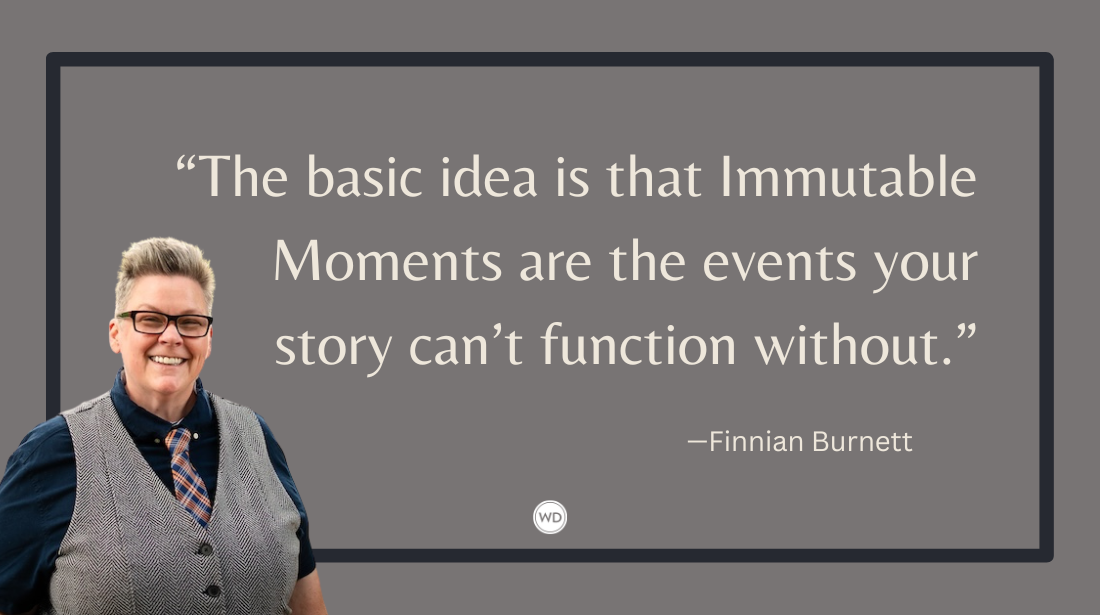3 Tips for Writing Dystopian Young Adult Fiction
If you’ve ever heard it said that there’s no new way to write a story, let author Julian R. Vaca tell you otherwise. Here, he shares 3 tips for writing dystopian young adult fiction to help silence our inner critics.
There’s an old saying that can spook even the most confident of writers: There’s nothing new under the sun. Intimidating, right? What this foreboding warning doesn’t take into account, however, is you. You have a voice that’s distinctly yours, one that can elevate your story and set it apart. All you have to do is learn how to lean into what makes you ... you.
Below I’ve outlined three tips that will help any writer—novice or seasoned—silence that inner critic and get his or her dystopian narrative onto the page. And while these fundamentals are certainly applicable to any sub-genre in fiction, I’ll be detailing them through the lens of dystopian YA—one of my personal favorite sub-genres.
So, let’s get to it.
1. Writers Are Readers First
Sure, this one may seem like a “gimme,” but you’d be surprised by how many young writers I’ve spoken with over the years who forget how important it is to be immersed in reading. We all draw inspiration from our favorite books and authors, so it’s necessary for you to be actively reading.
When I was drafting The Memory Index, I was also reading David Arnold’s The Electric Kingdom and rereading John Green’s Looking for Alaska. One is dystopian, one is coming-of-age, both are terrific standalone novels that provided me tonal and character inspiration I would have otherwise missed had I not been reading.
Go to the library. Check out a book(s). Start reading today.
IndieBound | Bookshop | Amazon
[WD uses affiliate links.]
2. Your Novel Should Be a Cocktail
Full disclosure: I’m just borrowing this tip from #1 New York Times bestselling author Brandon Sanderson, who often talks about his approach to concepting and ideation on his popular YouTube channel. His groundbreaking fantasy novel Mistborn is the sum of multiple inspirations, including (but not limited to) the films My Fair Lady and Ocean’s 11. He asked the question, “What would happen in a fantasy world if Sauron or Voldemort had won?” But he didn’t stop there: He made his epic fantasy a heist story too, with some high-stakes politics thrown in for good measure.
When setting out to write your dystopian tale, look for ways that you can bring in multiple genres. Is your novel a mash-up of a buddy cop story, a western, and a mystery? Pull elements from multiple places to infuse your manuscript with a unique tone—flip the script, turn the convention on its head.
Ask the question: What if Katniss Everdeen was booksmart instead of street smart, and what if she lived in a thriving utopia that was built on a dark secret?
3. Find an Accountability Partner
This final tip can certainly feel like the most daunting one. Writing a novel is a very personal endeavor; however, it’s one that requires a great deal of discipline. Find someone who you trust deeply and ask them to check in with you daily. You don’t have to ask them to read your pages—in fact, I strongly discourage that. But you need someone with whom you can share your benchmarks. A champion, a cheerleader, someone who is going to keep you honest and on it.
I personally like to map out word goals for my novels broken down by day. I know plenty of writers who simply can’t operate that way; having a 500-word goal staring them in the face stymies their creativity. But they do aim for pages or story progress. For example, on one day their goal may be to get their heroine from Point A to Point B; on another day, their goal is to have their heroine meet the antagonist for the first time. The point is that you need goals and you need someone holding you accountable.
Celebrate the Victories—No Matter How Small
Writing a novel takes a lot of time and work. Be sure to intentionally celebrate any and all wins along the way. Whether it’s completing the first 50 pages or eclipsing 50,000 words, these milestones deserve to be shouted from the proverbial rooftops. And don’t forget—what you’re writing you’re not etching in stone. You will rewrite and then rewrite some more! So, enjoy those milestones and don’t fret over the manuscript’s imperfections. The time for retooling your story will come, but that’s after you have a completed novel to work with.
You’re writing, you’re actually putting in the work, and that’s plenty to get excited about.
Julian R. Vaca has been a creative writer for over a decade. He's a staff writer on PBS's "Reconnecting Roots," a nationally broadcast show that drew in millions of viewers over its first two seasons. He's also the co-writer of Pencil Test, a feature-length documentary that's being executive produced by Disney animation legend Tom Bancroft (Earnest Films, 2023). Julian lives in Nashville with his family. Connect with him at JulianRayVaca.com; Instagram: @JulianRayVaca; Twitter @JulianRVaca; and Facebook: @JulianRVaca.








